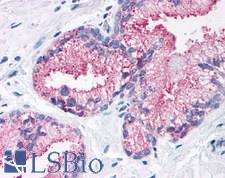Login
Registration enables users to use special features of this website, such as past
order histories, retained contact details for faster checkout, review submissions, and special promotions.
order histories, retained contact details for faster checkout, review submissions, and special promotions.
Forgot password?
Registration enables users to use special features of this website, such as past
order histories, retained contact details for faster checkout, review submissions, and special promotions.
order histories, retained contact details for faster checkout, review submissions, and special promotions.
Quick Order
Products
Antibodies
ELISA and Assay Kits
Research Areas
Infectious Disease
Resources
Purchasing
Reference Material
Contact Us
Location
Corporate Headquarters
Vector Laboratories, Inc.
6737 Mowry Ave
Newark, CA 94560
United States
Telephone Numbers
Customer Service: (800) 227-6666 / (650) 697-3600
Contact Us
Additional Contact Details
Login
Registration enables users to use special features of this website, such as past
order histories, retained contact details for faster checkout, review submissions, and special promotions.
order histories, retained contact details for faster checkout, review submissions, and special promotions.
Forgot password?
Registration enables users to use special features of this website, such as past
order histories, retained contact details for faster checkout, review submissions, and special promotions.
order histories, retained contact details for faster checkout, review submissions, and special promotions.
Quick Order
PathPlusTM FZD1 / Frizzled 1 Antibodies
Receptor for Wnt proteins. Most of frizzled receptors are coupled to the beta-catenin canonical signaling pathway, which leads to the activation of disheveled proteins, inhibition of GSK-3 kinase, nuclear accumulation of beta-catenin and activation of Wnt target genes. A second signaling pathway involving PKC and calcium fluxes has been seen for some family members, but it is not yet clear if it represents a distinct pathway or if it can be integrated in the canonical pathway, as PKC seems to be required for Wnt-mediated inactivation of GSK-3 kinase. Both pathways seem to involve interactions with G-proteins. May be involved in transduction and intercellular transmission of polarity information during tissue morphogenesis and/or in differentiated tissues. Activated by Wnt3A, Wnt3, Wnt1 and to a lesser extent Wnt2, but not by Wnt4, Wnt5A, Wnt5B, Wnt6, Wnt7A or Wnt7B.
References: The UniProt Consortium. Nucleic Acids Res. 47: D506-515 (2019); Nucleic Acids Res. 2016 Jan 4;44(D1):D733-45, PMID:26553804
1 PathPlusTM Antibody

☰ Filters
Products
Antibodies
(1)
Type
Primary
(1)
Target
FZD1 / Frizzled 1
(1)
Reactivity
Human
(1)
Mouse
(1)
Rat
(1)
Bat
(1)
Bovine
(1)
Dog
(1)
Hamster
(1)
Horse
(1)
Monkey
(1)
Rabbit
(1)
Application
IHC
(1)
IHC-P
(1)
Host
rabbit
(1)
Product Group
GPCR Database Antibodies
(1)
PathPlus Cancer
(1)
Clonality
polyclonal pc
(1)
Format
Unconjugated
(1)
Epitope
N-Terminus
(1)
Publications
No
(1)

Cancer
Fast Shipping
FZD1 / Frizzled 1 Rabbit anti-Human Polyclonal (N-Terminus) Antibody
Rabbit, Mouse, Dog, Bovine, Rat, Hamster, Horse, Bat, Human, Monkey
IHC, IHC-P
Unconjugated
50 µg/$460
Viewing 1-1
of 1
product results










